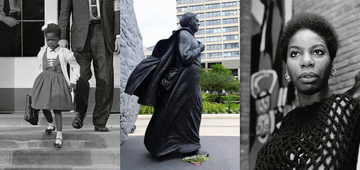- 10 April 2025
Commissioners in Trafford were quick to see the strategic case for the MECC for Mental Health training, and have commissioned one of the organisations delivering the training to roll it out further. Lead Trainer, Alicia Clare, tells us about the value of MECC for Mental Health and the future for the programme in Greater Manchester.
Alicia Clare is director of Bluesci Support, a community health and wellbeing service in Trafford, Greater Manchester. She has also been one of the lead trainers in RSPH’s Make Every Contact Count (MECC) for Mental Health training programme.
What got you involved in MECC for Mental Health?
I’m a mental health nurse and a psychological wellbeing practitioner by profession, and I manage a team of Wellbeing Practitioners / social prescribers. I was recommended the training by the then lead for Greater Manchester Social Prescribers, and it immediately struck me as something which could be really valuable. I had been having a lot of conversations with social prescribers who identified that they were struggling to have conversations with people about their mental health, and that struck me as a real missed opportunity.
What does being a Lead Trainer involve?
After doing the course as Lead Trainers, we’ve then gone on to deliver the Train-the-Trainer programme to people who will roll it out to a larger number of frontline staff and volunteers. I trained a cohort across Greater Manchester, who have then each delivered sessions of the training to end-users. Being a Lead Trainer also involves providing follow-up support to that group of trainers, mainly to provide reassurance, helping them to reflect on their experience of delivering the training, and to help them answer any of the questions which participants raised in the session.
What did you find valuable about the content of the training?
The training gives you really good techniques to have conversations with people in a way they can easily understand, rather than being too clinical or medicalised. There’s a lot of visual content in terms of images and diagrams, like the stress container, which can really help open the door to conversations about mental health. Then, understanding the evidence which underpins those techniques helps build people’s confidence in using them.
The structure of the training also makes it really accessible – it breaks the content down into smaller, easily digestible modules, and it can be delivered online, so it’s open to anyone, no matter what their background or experience.
It also introduces people to the factors which are connected to mental health and wellbeing, such as Adverse Childhood Experiences or different kinds of trauma. So, it helps frontline staff and volunteers to understand the causes behind mental ill-health as well as some helpful strategies for talking about it.
What resonated with me personally was the ethos behind the ‘Make Every Contact Count’ approach, because it can be applied to so many areas. It’s not about being an expert, but engaging with someone as an expert of their own experience and helping you to be comfortable to listen to, and explore that, with them. I found it really refreshing to break it down into just having a conversation with someone.
What have the benefits of the training been to those doing the training?
For lots of the trainers, they’ve learned a whole new set of skills. I work with two people who are now delivering the training, and I’ve seen how they’ve grown in confidence and their sense of empowerment as a result of that experience. Now they have the techniques which come from being a MECC trainer which they can draw on in their everyday practice.
For Bluesci, as a third sector organisation, having a number of MECC trainers on our team means we now have a training arm to our organisation which we didn’t have before. So that strengthens our position as an organisation, as well as bringing real value to the community we serve.
There’s a camaraderie between Lead Trainers. I met so many amazing people from all across the country on the course, staying in touch with a number of them is a helpful support. There was one part of the content – the mental health continuum – which I was struggling to explain, so I spoke to another Lead Trainer who showed me how she demonstrated it, and that really simplified it for me. I’ve found that everyone wants to help and support each other, and I think that’s a result of how the Train-the-Trainer sessions were set up. The tutors were really engaging and welcoming, encouraging us to ask any questions and build relationships with each other. Even though it was all online, it felt very safe and supportive.
What’s one piece of advice you’d give to a MECC trainer?
Don’t sweat the tech! That’s what I was told by one of the tutors when I was anxious about the logistics of doing the training online, and now I say it to everyone! People can get really worried about what would happen if their internet fails, or they can’t sort out the break-out rooms. So I always try to take that extra pressure off the trainers, because people are more tolerant and patient when things don’t go quite according to plan than you might expect.
What is the strategic value of the MECC for Mental Health programme?
Trafford CCG see the MECC for Mental Health training as a key part of the Living Well agenda and the Trafford Integrated Mental Health Transformation Strategy. So having initially focused on Primary Care Network social prescribers, we’ve now been commissioned to deliver it to frontline non-clinical workers from adult social care, community hubs, VCSE organisations and libraries.
Through the Covid-19 pandemic, we’ve seen a real growth in the need for community hubs. In addition to helping people access groceries and other essentials, they’ve also been addressing the loneliness and isolation that people have been feeling. That means they’ve been seeing first-hand the impact of the pandemic on mental health, but they haven’t always felt that they have the skills or confidence to offer mental health support. Often, we find that people avoid having conversations about mental health because they’re scared of saying the wrong thing. So the aim of rolling out the MECC for Mental Health further is to support that workforce to have those conversations. We’ve received funding to deliver three more Train-the-Trainer sessions to a cohort of 36, with the aim of upskilling 400 individuals in total.
How else can you see the MECC approach being valuable in the future?
The ‘Make Every Contact Count’ approach can be applied to almost anything. I‘m going to be working with RSPH to adapt the training to conversations about the menopause – because that’s another topic that people worry they don’t know enough about it and don’t want to say the wrong thing, and so let opportunities to support women experiencing the menopause pass them by.
As a result of Covid-19, there’s a whole new workforce which is interested in supporting health and wellbeing. It’s not just health and social care staff, but people in shops, salons, schools – anyone in a public-facing role. Everyone could benefit from knowing how to use MECC. So I’m hoping we can develop a really strong momentum behind this programme so it can be used by more and more people in more and more settings.



